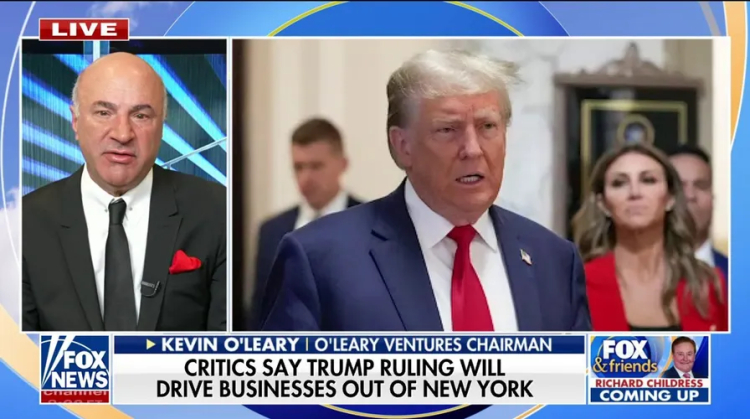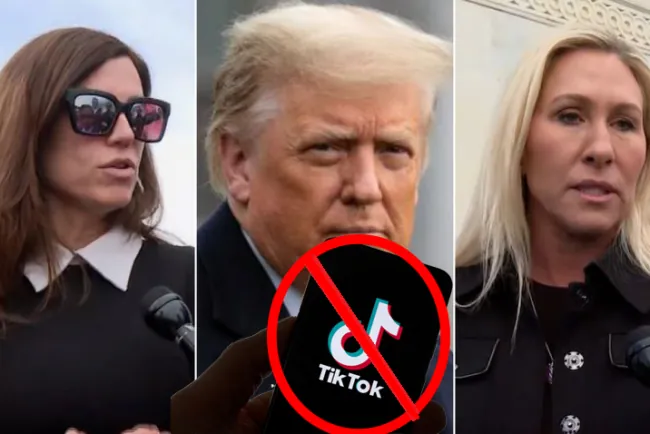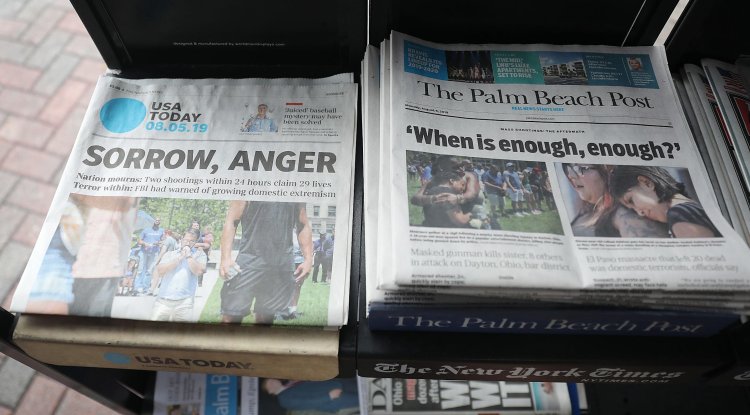Impact of Trump Fraud Ruling on Real Estate
Impact of Trump Fraud Ruling on Real Estate: Insights from Kevin O'Leary

Trump Fraud Ruling Reveals New York's 'Assault' on Real Estate: Insights and Implications
Dive into Kevin O'Leary's insights on the Trump fraud ruling and its significant impact on real estate investment and business climates across states. Learn why certain states are emerging as business havens while others fall behind.
Explore the impact of the Trump fraud ruling on New York's real estate market and why Kevin O'Leary suggests businesses move out. Understand the implications for investors and the future of real estate development in New York and beyond.
The recent ruling against former President Trump, involving a hefty $355 million in punitive damages for civil fraud, has sent shockwaves through the real estate sector in New York. Kevin O'Leary, the O'Leary Ventures chief and renowned "Mr. Wonderful" from "Shark Tank," has vocally criticized this development, framing it as an 'assault' on the real estate industry. This article delves into the nuances of O'Leary's arguments, the broader implications for real estate investment, and the shifting landscape for businesses considering New York for their operations.
Kevin O'Leary's Perspective on New York's Business Climate
O'Leary's comments on "Fox & Friends Weekend" highlighted a growing concern among real estate investors and developers regarding the punitive damages levied against Trump. By advising to disregard the "Trump factor," O'Leary underscores a critical message: the ruling transcends individual personalities and signals a hostile environment for real estate development and investment in New York. The arbitrary nature of the judge's decision, as O'Leary perceives it, poses a significant risk for anyone looking to risk capital in New York's real estate sector.
The Financial Implications of the Ruling
The $355 million punitive damages figure is not just a financial blow to Trump but sets a precedent that could deter future real estate investments in New York. This section examines the financial ramifications of the ruling and its potential to redefine investment strategies within the state.
New York vs. Other States for Business and Real Estate Development
O'Leary contrasts New York with states like West Virginia, Florida, and North Dakota, which he labels as "winner" states for business and real estate development. This comparison sheds light on the factors that make certain states more attractive for business operations and real estate investments, including regulatory environments, tax policies, and overall business friendliness.
The 'Assault' on Real Estate: A Closer Look
The article further explores the implications of O'Leary's assertion that the Trump fraud ruling represents an 'assault' on the real estate industry in New York. It delves into the broader impact on developers, the potential chilling effect on new investments, and the message it sends to the business community at large.
Real Estate Investment Strategies Post-Ruling
In response to the changing dynamics in New York, real estate investors are reevaluating their strategies. This section provides insights into how investors are adapting, including looking towards alternative markets and employing more rigorous risk assessment techniques.
The Impact on Small vs. Large Developers
The Trump fraud ruling's impact varies across the spectrum of real estate developers. This analysis distinguishes between the challenges and opportunities faced by small versus large developers in navigating the New York market post-ruling.
Legal Perspectives on the Trump Fraud Ruling
A legal analysis of the punitive damages decision offers a deeper understanding of the legal framework surrounding real estate fraud cases in New York. This section also explores the possibilities for appeal and the legal precedents that could influence future real estate litigation.
Economic Analysis: New York Real Estate Market Trends
An economic perspective on the current and future trends in the New York real estate market provides a comprehensive view of the potential long-term effects of the Trump fraud ruling on market dynamics.
Interviews with Industry Experts
Gathering insights from a diverse range of real estate experts, this section presents a multifaceted view of the ruling's impact. It includes perspectives from investors, developers, legal analysts, and economic experts, offering a well-rounded analysis of the situation.
Case Studies: Successful Real Estate Ventures Outside New York.
Summary: Kevin O'Leary, also known as "Mr. Wonderful" from "Shark Tank," recently voiced his concerns over the Trump fraud ruling, emphasizing its broader implications for the real estate sector and the business environment in various states. This article explores O'Leary's perspective on the ruling's impact, highlighting the shift in attractiveness among states for business operations and real estate investments. We'll delve into why O'Leary considers West Virginia, Florida, and North Dakota as "winner states" for businesses, and why California, New York, and New Jersey might not be the best choices in the current legal and economic climate.
What's Your Reaction?






















